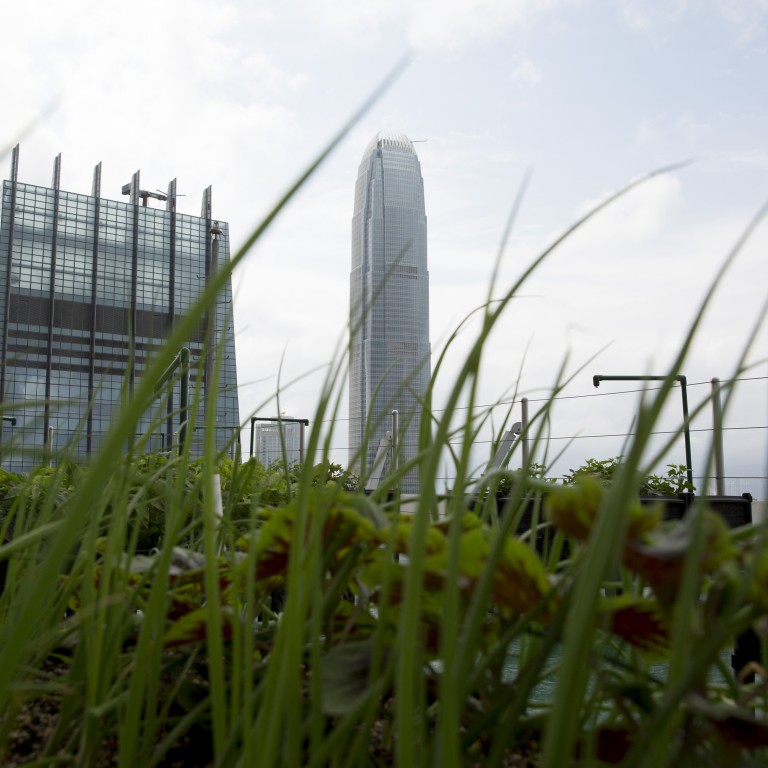
Urban planning must reflect Hong Kong's great need for community and open space
Ian Brownlee says a single-minded focus on residential housing will affect Hong Kong's liveability
There is no doubt that the previous administration did not put enough land up for sale. Housing supply dropped to a level that affected the affordability of homes in Hong Kong. But affordability of housing is a worldwide problem, not just here.
The present administration is totally focused on the provision of residential flats. One unintended outcome is likely to be the long-term shortage of open space, and community and institutional facilities for the people who will live in these new flats - and for the existing residents.
At the same time, there is wide recognition that social support needs for the community are changing and increasing as the population ages, and as economic changes drive more lower-income manual jobs out of Hong Kong. Some of these issues are covered in the chief executive's policy address, but they are not getting sufficient focus in the provision of land and facilities.
The government is pressuring the Town Planning Board to rezone sites for housing that are reserved for open space and government, institutional and community uses.
There is growing resistance to this from local residents and district councils across Hong Kong - recently in Shau Kei Wan and Kwai Chung, for example - as people become aware of the consequences.
Irrespective of informed and cogent arguments from local people, these community sites have been rezoned and this is likely to continue as the housing machine moves relentlessly onward.
The top-down system that overrides community concerns does not know or respect the problems that people face daily. It is almost heartless in the way it removes or prevents the provision of services that needy people depend on.
The problem is threefold.
First, many of the social and community services are not provided by government, but by non-governmental organisations of many types. Some NGOs have government financial support but many don't.
These are not recognised as permanent providers of social services, as they don't strictly fit the government mould. Such organisations do not have permanent sites or premises, even though many have been in existence for 20 to 30 years. Typically they're on short-term leases of around five years.
Thus, although they provide essential services to groups in the community, a lack of permanent sites limits long-term investment in facilities and there is always the threat of having to move on or close down.
Second, Hong Kong's planning standards are outdated and do not specifically require the provision of sites or premises for housing for the elderly, support facilities for the handicapped, early education, or for religious facilities. Even though such facilities are urgently needed in many cases, because they are not on the list they are not considered.
When facilities are not included in the government's development plan, land previously proposed for a park or social/community facilities is considered surplus.
This overlooks the long-term need, and does not take account of NGO requirements and their significant contributions.
Third, the Lands Department does not have a list of vacant sites for use by community groups or sports groups. Therefore, nobody knows what is available or what the real needs are. Many community service providers are experts in providing services, but have no time, money or expertise to run the gauntlet of unclear government procedures to obtain a piece of land or premises.
The Leisure and Cultural Services Department is unable to develop parks and sports grounds as it doesn't have the finances for it and it doesn't want to increase its recurrent expenditure. Any vacant open space is usually put out for a short-term use such as car parking. When rezoning comes around, it becomes an obvious target for a housing site.
Recreation and the greening of the city is being adversely affected. The density of population and buildings in our urban areas will increase. Without open and green space, the city will become hotter and liveability will be affected.
Why not give these open spaces to sports bodies or schools to manage? Why not turn some into community urban farms? The demand is there and it should not be dependent only on the Leisure and Cultural Services Department's capacity to provide facilities.
Sustainability of the city depends on much more than housing. Before becoming too focused on housing, government officials need to do more than just talk to each other. They should also talk to the community and listen to the concerns of those who provide services, and listen to those who need the social services now under threat.
The outcome is not just a paper exercise to be carried out in government offices; it will directly affect people's lives.

